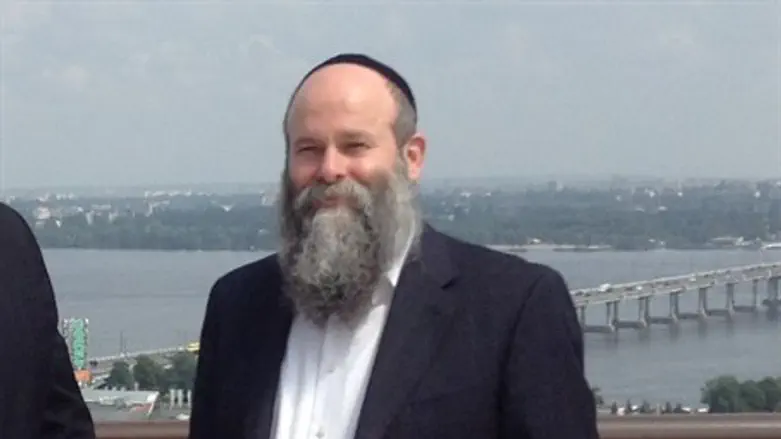
In an interview with Arutz Sheva, Rabbi Shmuel Kaminsky, the Chabad emissary in the city of Dnepropetrovsk, Ukraine, discussed the mass Seder he presided over in a city where some fifty thousand Jews live. In the city, however, there are also tens of thousands of Jews who do not identify themselves as such and do not know about their past as Jews.
Rabbi Kaminsky said that the city was founded about 230 years ago, named for Queen Catherine, who immediately upon its formation invited Jews to settle there. This invitation has made the city a major, vibrant Jewish center.
Among the prominent residents of the city prior to World War II was the former Lubavitcher Rebbe, Rabbi Menachem Mendel Schneerson. His father had served as rabbi of the city for thirty years until the Communists imprisoned him and sent him into exile in Siberia, where he died. Rabbi Kaminsky noted that the communists had hoped and believed that with the expulsion of Rebbe, Judaism would die out in the city – but actually, Judaism is alive and well there today.
Rabbi Kaminsky said that thousands of families celebrated the Seder in their homes,with some of them receiving material and spiritual assistance – for holiday needs and training in how to run a Seder - from the Chabad House in the city. In addition there were several communal Seders, each of which was attended by about a thousand, with the main Seder hosting about five thousand. Rabbi Kaminsky noted that about three hundred guests from Israel helped in leading the Seders.
For many of those attending, it was their first Seder. The rabbi discussed at the Seders the “fifth son,” the one who generally does not even come to the Seder. He said that although Passover is a holiday characterized by family - and that at a mass Seder it may be a little difficult to relate to family - the added value of the event was the spirit that only comes with the presence of so any others attending.. "A Jew who participated in one of these mass Seders will remain Jewish," he is convinced, noting that there were about forty thousand Jews who did not participate at all.
Rabbi Kaminsky said that many Jewish families changed their family names to Ukrainian ones in order not to be identified as Jewish during the Communist regime, allowing their kids access to jobs, universities and more. Today, members of the older generation tell their children the truth about those days – and about themselves, said Rabbi Kaminsky. "They explain to them that the the time for hiding is done, and that they can now go back" to Judaism. Rabbi Kaminsky said that every day more and more families return to their Jewishness, although it is not a simple process.
Rabbi Kaminsky asked in this context how he, as a Chabad representative, straggles the thin line between strict religious law and the desire to return the Jewish masses to the Judaism that the decades of communism forced them away from. In response, Rabbi Kaminsky said that he was happy that he himself did not perform conversions, since the task is not simple. "There is a conversion court headed by Rabbi Yosef Brodbeiker that is doing very important work in this area, and I appreciate him for that. Anyone of Jewish ancestry who is willing to accept the main tenets of faith, including Shabbat, kashrut and family purity, are accepted and converted.”